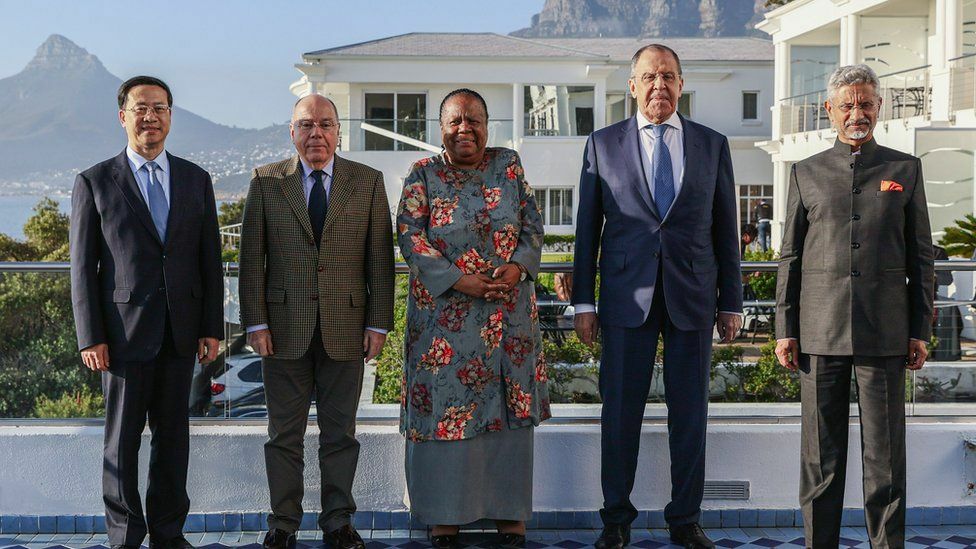Brics foreign ministers demand global order rebalancing amid Putin arrest warrant

Foreign ministers from the BRICS nations gathered in South Africa, urging for a shift in the global order away from Western nations. The BRICS group, comprising Brazil, Russia, India, China, and South Africa, envisions providing global leadership in a world facing geopolitical tension, inequality, and global insecurity. However, the recent allegations of Russian war crimes in Ukraine have cast a shadow over the talks. The International Criminal Court (ICC) has issued an arrest warrant for Russian President Vladimir Putin, and as a member of the court, South Africa would be obliged to arrest him if he attends the BRICS summit scheduled for Johannesburg in August.
The BRICS group is considered by some as an alternative to the G7 group of developed nations. At the Cape Town meeting, Indian Minister of External Affairs Subrahmanyam Jaishankar stated that the gathering must “send out a strong message that the world is multipolar, that it is rebalancing and that old ways cannot address new situations.” He added that the core issue faced by many nations is economic concentration that leaves them at the mercy of a few.
Brazilian Foreign Minister Mauro Vieira described the BRICS as an “indispensable mechanism for building a multipolar world order that reflects the desires and needs of developing countries.” Chinese Vice Foreign Minister Ma Zhaoxu suggested that the BRICS group could be expanded to provide assistance to developing countries and emerging market economies.
Russian Foreign Minister Sergei Lavrov’s presence at the event sparked protests, with demonstrators accusing him of being a “child murderer.” South Africa’s governing African National Congress (ANC) has long-standing ties with Russia dating back to the years of white-minority rule before 1994, and the country has refused to criticise Moscow’s invasion of Ukraine.
South African Foreign Minister Naledi Pandor was asked by BBC correspondent Andrew Harding whether Putin would be arrested if he came to the summit in August. “The president [Cyril Ramaphosa] will indicate what the final position in South Africa is,” she replied. A senior official privately described the situation as a diplomatic nightmare from which the South African government was desperate to escape, and one option said to be under consideration is moving the summit to another country.
Latest Thailand News
Follow The Thaiger on Google News:
























